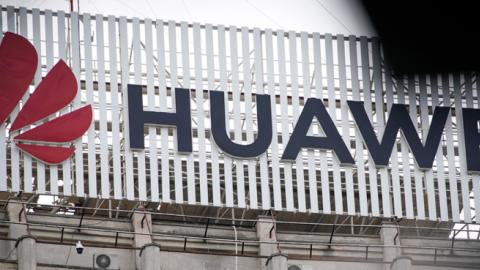US Commerce Secretary Wilbur Ross recently told an American Chamber of Commerce audience in Australia that President Donald Trump was keeping the pressure on China to repair the rules-based order and global economic system, and allies like Australia should join. A day later, the US and China announced they had reached a partial trade deal which will halt the next round of threatened tariffs.
Are we heading towards reconciliation or further tension between the world’s two largest economies? For a clue, look to the escalating stand-off between America’s National Basketball Association and China.
As the NBA dispute indicates, the partial trade deal will do little to repair a fundamental fissure between the US and China: the Communist Party is able to persuade Chinese commercial entities to follow the party’s directives.
Consider what punishing the Houston Rockets and the NBA ought to remind us about the Chinese system. After the Houston Rockets’ general manager Daryl Morey posted an image on Twitter that included support for Hong Kong’s pro-democracy protesters, the Chinese Basketball Association suspended all cooperation with the Texas-based team, even though the tweet was deleted soon after.
CCTV, the major broadcaster of the sport in China, announced it would suspend airing Rockets events. Chinese internet giant Tencent Sports threatened to suspend live streaming for Rockets games while sponsors such as Li Ning Company and Shanghai Pudong Development Bank threatened to withdraw their support.
There are clear principles at stake here, such as the right to free speech and to speak one’s mind. Incidentally, it is China that is disrespecting the principle of non-interference in another country’s affairs when the Communist Party seeks to silence what an American in his homeland chooses to tweet.
With respect to the broader issue of the fraying economic system, consider Beijing’s mindset and the damage that is doing to the rules-based order.
Globalisation and the growing interdependence between economies must entail all sides competing according to a comparable set of principles, if the system is to endure. So-called win-win outcomes are only likely when participants have similar levels of commitment to economic liberalisation, especially significant separation between the party or the state on the one hand, and economic actors and individuals on the other.
In America, and most successful economies in the region, there are significant restrictions on the extent to which governments can force firms to do their bidding, and institutional limits on the extent to which firms make suboptimal commercial decisions to fulfil national or political objectives.
Although a member of the World Trade Organisation since 2001, China has introduced its own script. The country is ruled by a party that refuses to leave the commercial fate of its companies to the gods of competition, competence and chance.
On a scale far beyond that of any other major economy, Beijing uses state power, laws, regulations and resources to ensure that state-owned enterprises and national champions such as Huawei in targeted sectors, domestically and internationally.
Even the Chinese national intelligence law demands that all organisations and individuals support and assist national intelligence work, which is broadly defined in the country’s authoritarian system.
But the Communist Party’s heavy hand is not just an affront to liberal values. The more China grows, the more it fractures the rules-based economic system. Trump’s tariffs are a bold gambit to compel China to abandon practices such as the massive theft of intellectual property and the enormous subsidies given to state-owned enterprises. Chinese firms are flooding global markets with excess goods and destroying the prospect of fair trade with most of its partners.
The inability of global institutions to respond is a corollary. For example, existing WTO rules are not designed to deal with a Chinese political economy that is neither an old-fashioned command economy nor a market economy established under existing rules.
The complex network of relationships and connections between the party, state, regulatory and administrative entities, businesses and individuals are unique to China and unprecedented in scale among nations.
How do we legally determine whether a Chinese entity is associated with the party when even private Chinese firms must establish committees to ensure they carry out activities in accordance with the wishes of the party? Most grievances cannot be brought before the WTO because it doesn’t have the jurisdiction or body of case law to resolve these basic questions.
Indeed, important aspects of the Chinese political economy are deliberately organised in a manner to enable Chinese firms to circumvent WTO and other prohibitions.
When called on to punish errant foreign entities such as the NBA, there is little that Chinese companies can do but demonstrate their fealty to the party. Previously, it was companies such as Dolce & Gabbana, Marriott, Tiffany and American Airlines which were forced into grovelling apologies for perceived slights. Tomorrow, it will be another firm.
The partial trade deal might be a small and transient blessing. But the US and China cannot give in to the other’s satisfaction without altering their fundamental character.
Read in South China Morning Post

















